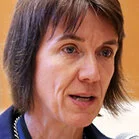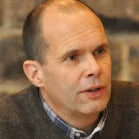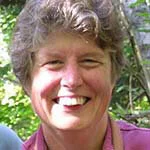Join us for a webinar in partnership with the Wildlife Conservation Society featuring
Karin Goebel
Minister and Head of the Economic Department
Permanent Mission the Federal Republic of Germany to the UN
Dr. Christian Walzer
Executive Director of Wildlife Health
Wildlife Conservation Society (WCS)
Moderated by
Dr. Elizabeth Bennett
Vice-President, Species Conservation
Wildlife Conservation Society (WCS)
COVID-19 will have profound and lasting global economic and social consequences. Going forward it will be vital for humankind to act on existing science and further knowledge on how these pandemics occur and what actions need to be taken to prevent them in the future.
To reduce the likelihood of future pandemics, we need to rethink our relationship with wild animals and wild places. We need to change behaviors and practices to mitigate human risk while minimizing ecosystem disruptions.
One of the key actions that will need to be taken to prevent future major viral outbreaks such as COVID-19 will be to stop commercial trade in wildlife for human consumption. Pathogen spillover between wildlife hosts and humans occurs at ever-increasing interfaces as we humans encroach upon and destroy wildlife habitats.
In particular, markets trading and processing live animals or fresh meat from wildlife species represent a high-risk super-interface due to the large number of admixed species and their potential to shed and share viruses.
What are key underlying issues facing the global community and what policies does it need to put in place for preventing future zoonotic pandemics?
Join us from 6:00 to 7:00 p.m. EST on Thursday, April 16 to listen to, and interact with, world experts on these critical issues at a special webinar with:
Guest Speakers
KARIN GOEBEL
Karin Goebel has been Head of the Economic Department of Germany’s Permanent Mission to the UN in New York since July 2018. She joined the German Federal Foreign Office in 1993.
Her previous multilateral assignments in the FFO include a posting as Head of Division for Human Rights and Gender Issues (2015-18), preceeded by serving as Head of Division for OSCE and Council of Europe (2014-15; as Deputy Head of Division (2007-11), and as Desk Officer for European Security and Defence Policy (between 2002 and 2006). Additionally, Karin served in the UN Mission in Kosovo as Special Assistant to the SRSG (2002-03).
In bilateral assignments, Karin held posts in the German Embassy in Washington (2003-06), in the German Embassy in Madrid (2011-14), in the German Consulate General in Wroclaw, Poland (1997-2000); and as Desk Officer responsible for bilateral relations with a number of European countries (1995-97).
DR. CHRISTIAN WALZER
Dr. Chris Walzer is a wildlife veterinarian, Executive Director of Wildlife Health at the Wildlife Conservation Society. He is University Professor and Chair for Conservation Medicine at the University of Veterinary Medicine in Vienna, Austria.
Chris is a creative interdisciplinary idea initiator and problem solver; critical and strategic conservationist; non-territorial worker and indefatigable optimist. He has international recognized hands-on expertise working with wildlife, especially wild equids and carnivores, gained from combined years of work and research in Europe, Asia and Africa.
Chris has a very diverse international research track record with some 350+ scientific publications to his name. He is sought as a consultant in wildlife and conservation matters by various organizations such as WWF, UNDP, WCS, Panthera, OIKOS, SOS Rhino, World Bank, and several other GO’s; NGOs and universities.
Based on some 20+ years work experience in zoological institutions, Chris regularly consults zoological institutions on all aspects of animal husbandry, veterinary medicine, collection planning, enclosure design and conservation research. Over the past years Chris has successfully managed numerous large multi-national research teams with varied funding sources such as the EU and the Austrian Research Fund.
Moderator
DR. ELIZABETH BENNETT
Dr. Elizabeth Bennett is Vice President, Species Conservation, at the Wildlife Conservation Society.
Raised in the UK, Elizabeth went to Nottingham University to read zoology, and then to Cambridge University for her PhD on the ecology of primates in Peninsular Malaysia. She then moved to Sarawak, Malaysia in 1984, and lived and worked there for the next 18 years. Her first role there was working jointly for WCS and WWF Malaysia, to conduct the first-ever detailed study of the ecology and conservation needs of the proboscis monkey.
She subsequently conducted many projects for WCS and the Sarawak Government, culminating in her leading a team, with WCS and Sarawak Government staff, to write a comprehensive wildlife policy for the State, and subsequently to head a unit within the Government to oversee its implementation. A core part of the policy and its implementation comprised ways to control unsustainable hunting and wildlife trade.
More recently, Elizabeth has worked to direct wildlife trade initiatives for WCS field staff globally as Director of the Hunting and Wildlife Trade Program. Her work included developing and implementing a policy on bushmeat trade in Central Africa, and working on a strategic plan to address wildlife trade in China. She provided technical support to WCS field staff working on hunting and wildlife trade issues in 65 projects and 29 countries worldwide.
She has more than 120 scientific and popular publications, including co-editing a book which is a comprehensive review of the issue of hunting in tropical forests, and the World Bank policy paper on the same topic.
Her services to conservation have been recognized by her being awarded the “Golden Ark” award by Prince Berhard of the Netherlands in 1994, the “Pegawai Bintang Sarawak” (PBS) by the Sarawak State Government in 2003, “Member of the Most Excellent Order of the British Empire” (MBE) by Her Majesty Queen Elizabeth II in 2005, Leila Hadley Luce Award for Courage by Wings WorldQuest in 2006, and D.Sc. (honoris causa) by Nottingham University, UK in 2008.




